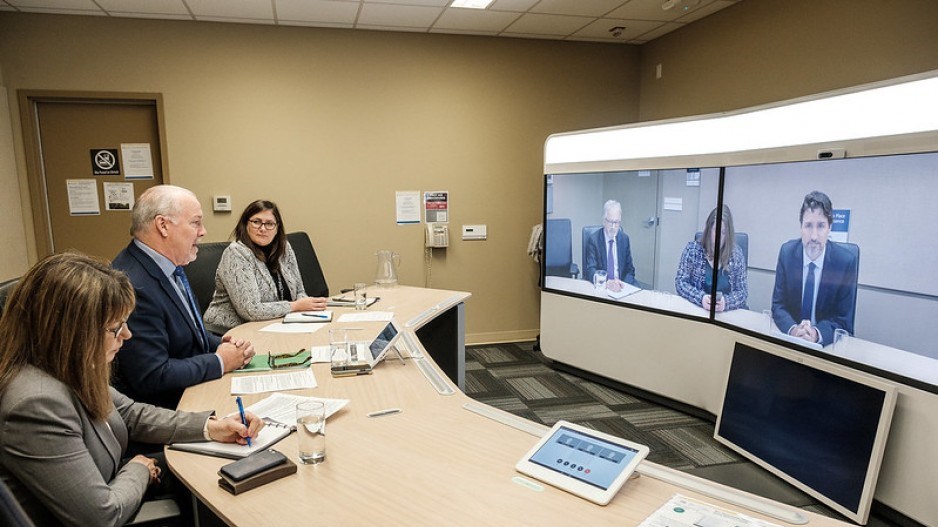Following up on a pledge made ahead of the 2017 provincial election, the B.C. government — with an assist from Ottawa — is setting its sights on offering childcare for $10 a day within the next five years.
Prime Minister Justin Trudeau announced Thursday on a trip to the Lower Mainland that the federal government had cut a deal with the province to achieve an “average of $10 a day” childcare for all regulated spaces for children under the age of six.
“Without good childcare, it’s practically impossible for parents — especially mothers — to build a career for middle-class families. Quality childcare can be incredibly expensive,” he said after meeting in person with B.C. Premier John Horgan in Coquitlam.
The federal budget had previously earmarked $30 billion for childcare over five years when it was presented back in April.
Finance Minister Chrystia Freeland said at the time parents should have access to early learning and childcare for an average of $10 a day within five years.
Trudeau said Thursday that 30,000 new childcare spaces would also be created during that five-year period, while a total of 40,000 spaces will be created over seven years.
He said average childcare fees for B.C. parents will be cut in half by the end of next year, adding this will be a “permanent partnership with minimum ongoing annual funding of $9.2 billion, right across the country.”
B.C. will receive $3.2 billion over the next five years, while the province itself is pledging to put $2.5 billion towards early learning and childcare over three years.
Trudeau said there will be “more than 12,000 $10 a day spaces available to make all of this happen.”
“If we’re going to have full participation as we come out of the pandemic, we need everybody in place. That means training early childhood educators, that means lifting those wages up,” Horgan said.
A July 2020 study from economists at RBC found that the pandemic had wiped out decades-long gains in employment made by women in the Canadian economy.
“The sheer size of the setback this pandemic has dealt to women’s labour force participation, together with the shape of the recovery so far, suggests a return to pre-COVID levels won’t be easy,” RBC deputy chief economist Dawn Desjardins wrote in the study, which was also co-authored by economist Carrie Freestone and RBC Economics editor Naomi Powell.
The authors point to the outsized role women play in industries hit hardest by the recession. “The majority of job losses have taken place in female-dominated industries, including accommodation and food services, retail trade, educational services and health care and social assistance – though this story is evolving as the recession wears on,” the report stated.
In accommodation and food services, for example, 8.8% of the male share of the industry had to bear layoffs in March and April 2020 compared with 11.4% of women during the same period.
The RBC report said childcare will be of prime concern moving forward.
“Given widespread uncertainty surrounding the format of children’s schooling in the fall (and the potential for a virtual/in-class blend), if mothers are unable to work remotely and have been laid off, they may hesitate to seek out new work while their child requires daytime supervision at home,” the authors stated.
Following BC NDP campaign promises during the 2017 provincial election, the province launched a series of $10-per-day prototype sites.
The B.C. government earmarked $60 million to convert about 2,500 licensed child-care spaces into low-cost spaces.
About 50 sites had launched by May 2020.



